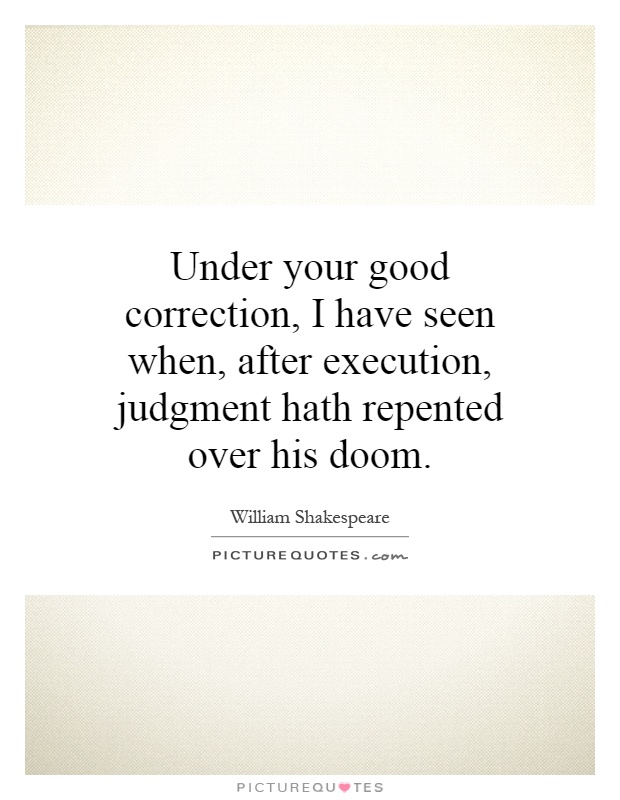Under your good correction, I have seen when, after execution, judgment hath repented over his doom

Under your good correction, I have seen when, after execution, judgment hath repented over his doom
In the world of William Shakespeare, the theme of redemption and repentance is a common thread that runs through many of his works. The quote "Under your good correction, I have seen when, after execution, judgment hath repented over his doom" speaks to the idea that even after a harsh judgment has been passed, there is still room for redemption and change.Shakespeare often explores the complexities of human nature and the capacity for growth and transformation. In many of his plays, characters are faced with difficult decisions and moral dilemmas that ultimately lead to their downfall. However, Shakespeare also shows that even in the face of tragedy, there is still the possibility for redemption.
The quote can be interpreted as a reflection on the power of forgiveness and the ability to learn from one's mistakes. It suggests that even after a judgment has been made and a punishment has been carried out, there is still the potential for change and growth. This idea is echoed in many of Shakespeare's plays, where characters are given the opportunity to reflect on their actions and make amends for their wrongdoings.
One of the most famous examples of redemption in Shakespeare's works is the character of Macbeth. After committing a series of heinous crimes in his quest for power, Macbeth is ultimately brought to justice and meets a tragic end. However, even in his final moments, there is a sense of remorse and regret for his actions. This demonstrates Shakespeare's belief in the power of redemption and the possibility for change, even in the face of overwhelming darkness.
Overall, the quote "Under your good correction, I have seen when, after execution, judgment hath repented over his doom" encapsulates the themes of redemption and repentance that are prevalent in Shakespeare's works. It serves as a reminder that even in the darkest of times, there is still the potential for growth and transformation. Shakespeare's exploration of these themes continues to resonate with audiences today, making his works timeless and enduring.












 Friendship Quotes
Friendship Quotes Love Quotes
Love Quotes Life Quotes
Life Quotes Funny Quotes
Funny Quotes Motivational Quotes
Motivational Quotes Inspirational Quotes
Inspirational Quotes